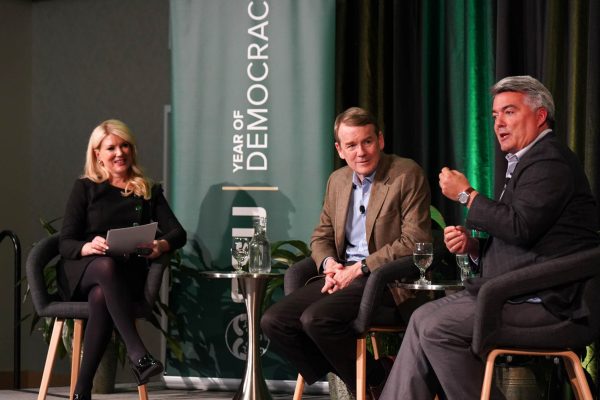Editor’s Note: All opinion section content reflects the views of the individual author only and does not represent a stance taken by The Collegian or its editorial board.
Yom Kippur, the holiest of Jewish holidays, is upon us. While many who are not Jewish themselves may not even know what Yom Kippur is, its themes and lessons are universal to all of mankind.
Ad
Yom Kippur is traditionally a time to reflect upon sin, atonement, and redemption. While these terms may seem archaic and outdated to many college students the meaning behind them is evergreen.
We can all benefit from taking the time to meditate on its core themes without converting to a new religion or celebrating the holiday. After all, one can still greatly appreciate and learn from works of literature and ancient traditions without literally believing in them.
Nearly everyone can recognize that there is a need to take time to think about their shortcomings and mistakes, their aims, ideals and the process by which they strive to become their best self.
In many ways, this is also the purpose of Yom Kippur.
“I’ve always thought of it as a day of reflection,” sophomore Leo Friedman said. “You kinda think ‘what did I do wrong this year and what can I do better next year to make the world a better place.'”
Caught in the hustle and bustle of everyday life it can often become difficult for one to find time to review themselves. This represents a tragic loss of opportunity as there are many who can benefit from setting aside time for a personal inventory.
According to Socrates, if the unexamined life is not worth living then one has a responsibility to themselves to ask, “How am I living my life and am I truly at peace with myself?”
Studies from the National Institutes of Health have even described self-reflection as “the engine of lifelong learning.” This gives the practice particular importance to those of us who have dedicated our lives to developing a deeper understanding of the world and our places in it.
Self-reflection is not the only thing necessary for a well-lived life. The National Institutes of Health suggests that “people’s biggest regrets are those marked by the greatest opportunity for corrective action.” To avoid regret in life one must make the most of the opportunities they have to change and grow.
Ad
This runs parallel to Yom Kippur’s message of atonement and redemption. Put simply, these terms describe the process by which one steps away from the person they have been and closer to the person they might be if they made the most of themselves.
“Everybody struggles with maximizing their potential,” Colorado State University professor and Rabbi Yerachmiel Gorelik said. “There are really no obstacles. There are just challenges to help you grow and rise above.”
“There are really no obstacles. There are just challenges to help you grow and rise above.”
This message mirrors the findings upon which modern psychotherapy is founded. It is an insight into the fact that one need not remain prisoner to their past circumstances.
By accepting what one has been through and who they have been up until now the potential for change is unlocked.
One need not be of the Jewish faith to drink deeply from the well of its wisdom. The insights of its religious observances are universal even if the way it recognizes them exist in a specific cultural context.
That context should be respected and part of respecting another’s culture is not simply adopting it for the sake of appearing educated or tolerant.
What is far more important is that there emerge a mutual relationship through which genuine understanding and brotherhood can be reached.
By reflecting upon the ideas running through Yom Kippur we can all partake in the opportunity to better ourselves as Christians, Jews, Muslims, Buddhist and atheist.
Any students interested in learning more about Yom Kippur or Jewish Culture can visit www.JewishCSU.com.
Arisson Stanfield can be reached at letters@collegian.com or on twitter@OddestOdyssey.


















